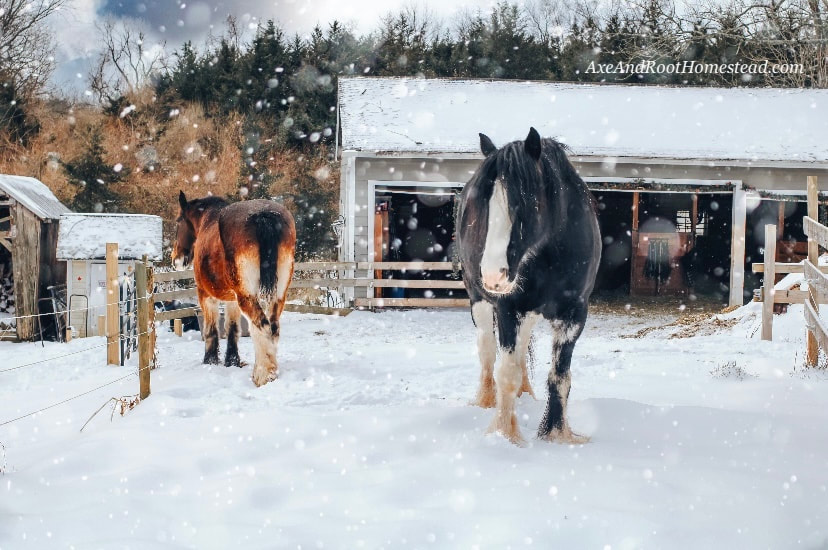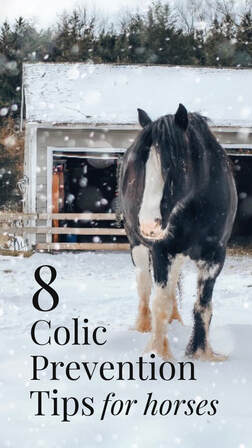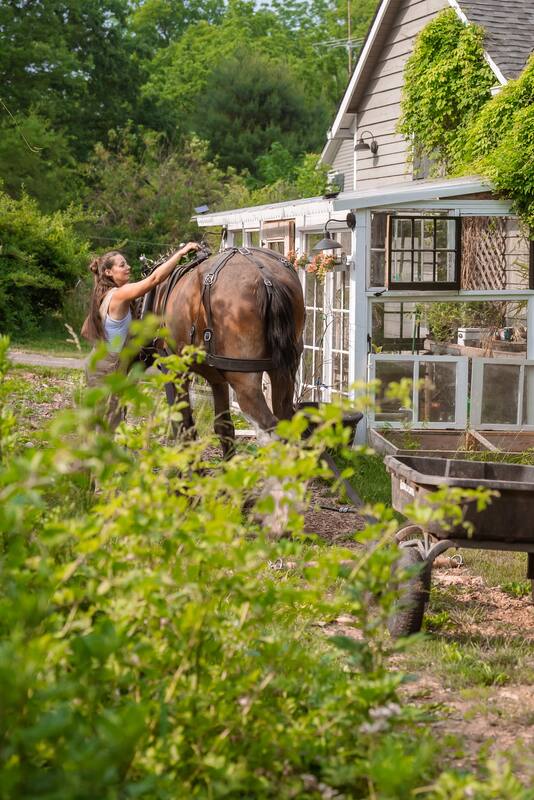|
There is something magical about horses in the snow. However beautiful, the cold season increases the risk for colic in horses. The fluctuations in the cold cause horses to “forget” to drink as much water as they should (or not have access to it due to a frozen water trough). The lack or decreased intake of water slows motility in the gut and causes stomach upset—ranging from gas and bloating to serious complications like twisted intestines.
Dozer (my black mare in the front) almost died two years ago from a horrible colic episode... she had had previous episodes before I even brought her home. So now I do everything I can to keep these babes safe and healthy, especially since one horse is recurrent. Here’s my tips:
I'm happy to say that since implementing these practices we've managed to completely avoid colic cases thus far. I hope this information is helpful! Comments are closed.
|
Angela is the farmer and content creator behind Axe & Root Homestead® LLC. This historic six-acre permaculture farm is home to two Clydesdale horses, ten honeybee hives, five sheep, two guardian dogs, barn cats and a flock of 40 geese and ducks. The farm produces maple syrup, fruit from a small orchard and loads of garden produce for consumption, preservation and donation to the local food pantry.
The Sustainable Homestead is available NOW!
Categories
All
|



